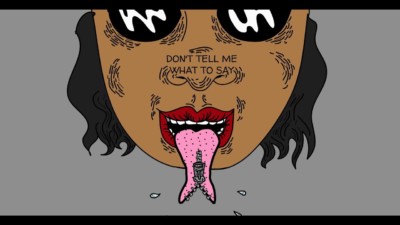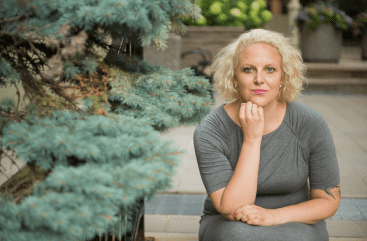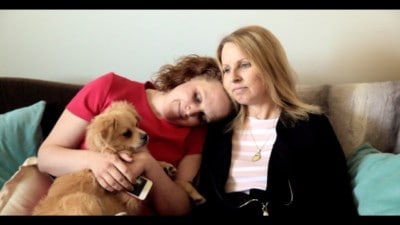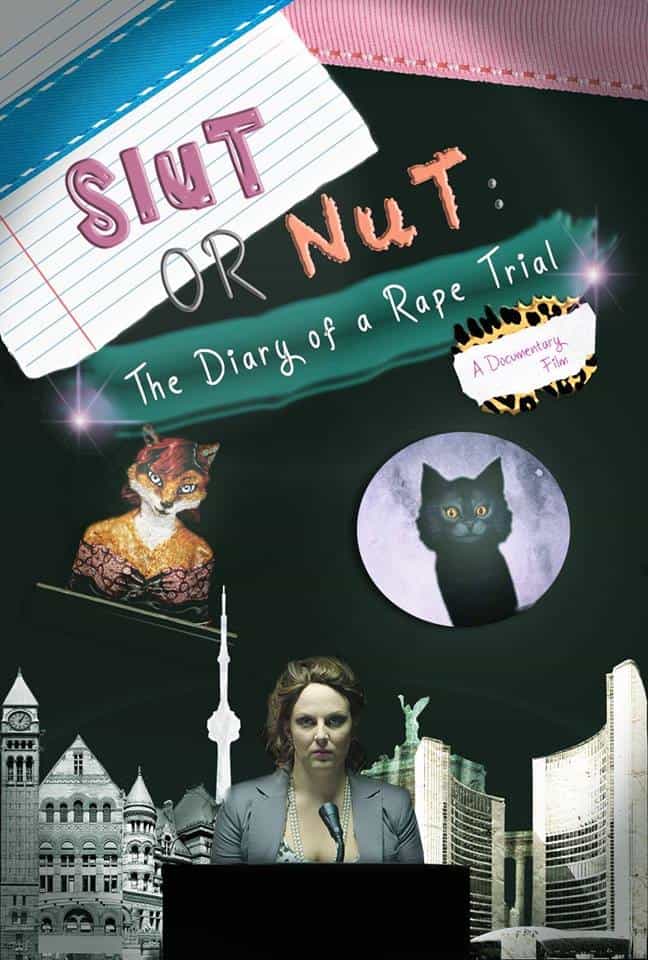TW: Sexual assault
When Mandi Gray reported being raped by a fellow PhD student, she wasn’t prepared for the labyrinth she was thrown into as a result of speaking out. When her former boss told her to document everything, she listened, keeping careful notes and video diaries that captured each conversation and development in the case.
A new documentary, Slut or Nut: The Diary of a Rape Trial, incorporates Mandi’s video diaries, animation, stories from other survivors and legal analysis to create a powerful educational tool. It cuts through assumptions about what a victim is supposed to do in the aftermath of an assault and spotlights the need for the judiciary to better inform survivors attempting to navigate the system.
We spoke with Mandi about the film this week.
SDTC: When you were documenting your experience, did you ever think it would eventually become a film?
MG: I started documenting with no sort of end vision. I ran into a documentary filmmaker and told her, “I think I want to make a documentary with all this footage I have.” She introduced me to Kelly Showker (the director & producer) and so when we first started, it wasn’t like we had a game plan. Then things started to get really complicated, and by the end of it, we had enough footage for a feature.
How did you feel when you first watched the completed film?
I told [Kelly Showker] from the get-go that I wanted to be a part of the process. I was very involved with the editing, the research. It’s not that common for the subject of a documentary to have that much control and input in the process.
But seeing it all completed is pretty surreal, like any creative project you’ve spent years working on. When people say, “The film was so powerful. You were so vulnerable,” I am like, really? Because I’ve lived it. Because I’ve watched it so many times. It’s reassuring to find out that it still has the intended impact.

Photo: Frizz kid
The animations in the film were really effective. I liked the punk/DIY feeling.
Kelly and I had similar interests in the DIY/riotgrrl aesthetic from the 1990s/early 2000s. The zine culture was something we were both really engaged in. We also wanted to make something that was colourful and engaging for an audience, especially when you’re talking about such a difficult topic.
All of the graphics and the art and animation were made by women producers. We drew in a lot of different artists, all of whom identify as women, and a lot of them also identify as survivors of sexual violence. We gave them a lot of leeway to create what they wanted to and allow their stories and experiences to be a part of the film.
Since going through this ordeal, who has surprised you, either by their support (or lack of it)?
With trauma in general, there will always be so many surprises. Certain friends that I thought were friends for life kind of disappeared. Alternately, so many people came into my life and stepped up. A lot of women from the department of the man who was charged reached out to me like, “What can we do? How can we support you?” These were people I’d never met prior to being assaulted. A lot of them I would consider to be some of my closest friends now. Also, my lawyer, whom I emailed (on a whim) saying, “I was sexually assaulted, help me,” and she did. The power of relationships and community really became apparent.

Photo: Calla Stevens
Looking back, is there anything you would have done differently post-assault?
To be honest? No. It’s been brutal; it’s been difficult. But I got everything I needed at the end of the day. I’m in my PhD still, in my fourth year and doing really well. It’s unfortunate that I had to go through all of this to be able to say those things, but I did what I had to, given the circumstances.
Everyone asks me if I regret reporting. No. Because I can’t imagine my life any other way. I can’t imagine what the alternative would have been–resuming in my program and just pretending it never happened? There really isn’t an alternative that has been presented to me.
Do you have any hope that the judicial system will change in your lifetime?
I don’t necessarily see it happening in the legal system any time soon. We met Jane Doe in the film, and her sexual assault trial happened thirty years–almost to the day–before mine. She is cited as such a monumental change-maker for the legal system and how it responds to sexual assault, yet if you talk to her, she will very adamantly say that not much has really shifted or changed.
But what I do think is changing is people’s willingness to speak up. The stigma and shame surrounding sexual assault has really shifted–even in the last three years–especially with the rise of the #MeToo movement.
What would have helped you?
Independent legal counsel. The province has made a step forward in that survivors of sexual assault are now able to get four hours of legal counsel before making a decision about whether to report or not. But absolutely, having a lawyer to go through your case, to tell you your options, is so important and it’s something I continue to advocate for.
Canada has some of the most progressive protections for survivors of sexual assault who are testifying; however, they’re just not respected in the courtroom. There’s this culture–they are there in paper but not really in practice. So utilizing the laws we have, as opposed to just disregarding them [would be an improvement].
I see from scanning your Twitter that you’re still dealing with misogynistic trolls. Do you ever feel like deleting your accounts and disappearing from the public eye?
Oh yeah. Last week I was reported to Tinder for being a “danger to men.” I love that Tinder actually banned that guy. I didn’t think that was something they would do, so that was nice to see. I take long breaks from social media and being in the public. I think having a sense of humour has been the only thing that’s been a saviour through all of this. It is hard, and I think there are a lot of folks doing a lot of great work to increase safety online for women, but we have a long way to go.

What do you hope comes of this film?
At the most basic level, I hope that this film educates people–not just folks who’ve experienced sexual violence. [I hope it educates] people who say things like, “If it is actually as serious as she says it is, she would have reported,”–challenging why people don’t report, or challenging this assumption that people should absolutely report. Getting insight as to what the legal process actually looks like will maybe provide people with answers for why a lot of people choose not to report.
In our lifetime, it is statistically likely that we will know someone who has been sexually assaulted. How we respond and react to that–whether it’s them disclosing or us talking about someone who has been sexually assaulted–can really impact people. I hope people take that into consideration when people say things that are discriminatory about people who’ve experienced sexual assault.
Slut or Nut screens at Hot Docs Toronto on Wednesday, May 2, 9 p.m. (Isabel Bader Theater); Thursday, May 3, 8:45 p.m. (Scotiabank Theatre); and Friday, May 4, 6:45 p.m. (TIFF Bell Lightbox). Get tickets here.


 Follow Us On Instagram
Follow Us On Instagram

 EXCLUSIVE TICKET GIVEAWAY!
EXCLUSIVE TICKET GIVEAWAY! This Thursd
This Thursd @insideoutfestival jus
@insideoutfestival jus